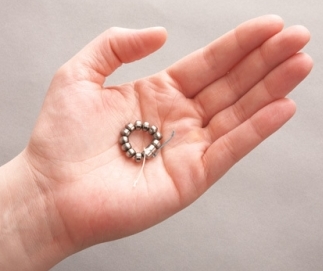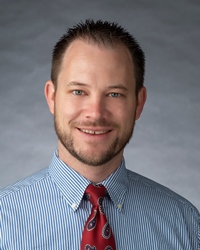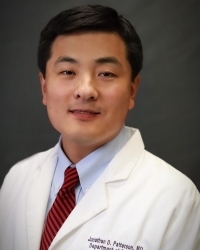The Center for Heartburn & Reflux
What’s acid reflux and GERD?
Acid reflux happens when contents from your stomach move up into your esophagus. It’s also called acid regurgitation or gastroesophageal reflux. If you have symptoms of acid reflux more than twice a week, you might have a condition known as gastroesophageal reflux disease (GERD). According to the National Institute of Diabetes and Digestive and Kidney Diseases (NIDDK), GERD affects about 20 percent of people in the United States. If left untreated, it can sometimes cause serious complications.
For further information, contact us at 816-942-4400
GERD Symptoms
Acid reflux can cause an uncomfortable burning feeling in your chest, which can radiate up toward your neck. This feeling is often known as heartburn. If you have acid reflux, you might develop a sour or bitter taste at the back of your mouth. It might also cause you to regurgitate food or liquid from your stomach into your mouth. In some cases, GERD can cause difficulty swallowing. It can sometimes lead to breathing problems, like a chronic cough or asthma.
GERD causes
The lower esophageal sphincter (LES) is a circular band of muscle at the end of your esophagus. When it’s working properly, it relaxes and opens when you swallow. Then it tightens and closes again afterwards. Acid reflux happens when your LES doesn’t tighten or close properly. This allows digestive juices and other contents from your stomach to rise up into your esophagus.
Risk Factors for GERD
- Obesity
- Hiatal Hernia
- Pregnancy
- Delayed stomach emptying
- Smoking
- eating large meals or eating late at night
- drinking alcohol or caffeine
Diagnosis
GERD can often times be diagnosed based on a history and physical examination alone. To confirm the diagnosis of GERD, check for complications associated with GERD or prior to considering reflux surgery your physician might recommend additional testing that is all available at St. Joseph Medical Center. This testing includes:
Upper endoscopy: A thin tube with a camera and a light is inserted down your throat so your physician can examine the inside of your stomach and esophagus. They will be looking for evidence of reflux disease, complications of reflux disease or to obtain biopsies.
Esophageal manometry: A thin catheter with pressure sensors is inserted through your nares and into your esophagus. These sensors measure muscle contractions and LES pressures during swallowing.
pH testing: A sensor is placed into your esophagus to identify if, and for how long stomach acid regurgitates into your esophagus.
GERD Treatment Options
GERD can be managed with dietary/lifestyle changes, medications that help reduce stomach acid production or surgical correction of the abnormal LES. Common medications used to treat GERD include proton pump inhibitors (PPI’s) or H2 receptor antagonists (H2RA). Possible surgical options include gastric bypass surgery, fundoplication or the new LINX procedure. If GERD can’t be managed with dietary/lifestyle changes or medications then surgical correction may be appropriate. Other indications to consider surgical corrections include: intolerable side-effects from PPI or H2RA therapy, the desire to avoid long-term medications or people with large hiatal hernias.
A Revolutionary Treatment for Reflux Disease: LINX

Reflux sufferers, meet LINX® — a revolutionary treatment for reflux. It’s a simple device with life-changing potential. LINX® is intended for patients diagnosed with Gastroesophageal Reflux Disease (GERD) as defined by abnormal pH testing, and who are seeking an alternative to continuous acid suppression therapy. Continue on to learn more about this small device and its results. Requires no permanent anatomic alteration to restore the reflux barrier.* The LINX Reflux Management System is a flexible ring of small magnets placed around the LES during a minimally invasive procedure. The strength of the magnets helps keep the LES closed to prevent reflux. When patients swallow, the LINX Reflux Management System opens temporarily to allow food and liquid to pass into the stomach.
Want to learn more? Call our Heart Burn & Reflux Center at 816-943-2687.
Your Care Team:

Scott Robert Holmes, DO
Gastroenterologist
Dr. Holmes received his undergraduate degree from the University of Kansas with a Bachelor of Science in Microbiology. He received his medical degree from Kansas City University of Medicine and Bioscience. His Internal Medicine Residency and his Geriatric and Gastroenterology Fellowships were completed at Saint Louis University and Saint Louis University Medical Center.
Dr. Holmes is Board Certified in Internal Medicine.
Gastrointestinal Associates
10116 W. 105th St.
Overland Park, KS 66212
Phone: 913-495-9600
Fax: 913-599-0951
Email: info@kc-gi.com

Jonathan Patterson, MD
General Surgeon
Dr. Jonathan Patterson is a native of Blue Springs, MO. He earned his undergraduate and medical degrees from the University of Missouri-Columbia. He completed his residency in general surgery at Truman Medical Center and Saint Luke’s Hospital of Kansas City. Dr. Patterson is board certified in general surgery by the American Board of Surgery.
United Surgical Associates of Kansas City
St. Joseph Medical Center
Multispecialty Suite, 201, Building C-East
1000 Carondelet Drive
Kansas City, MO 64114
Phone: 816-254-9292
Fax: 816-254-9292
Featured Services



